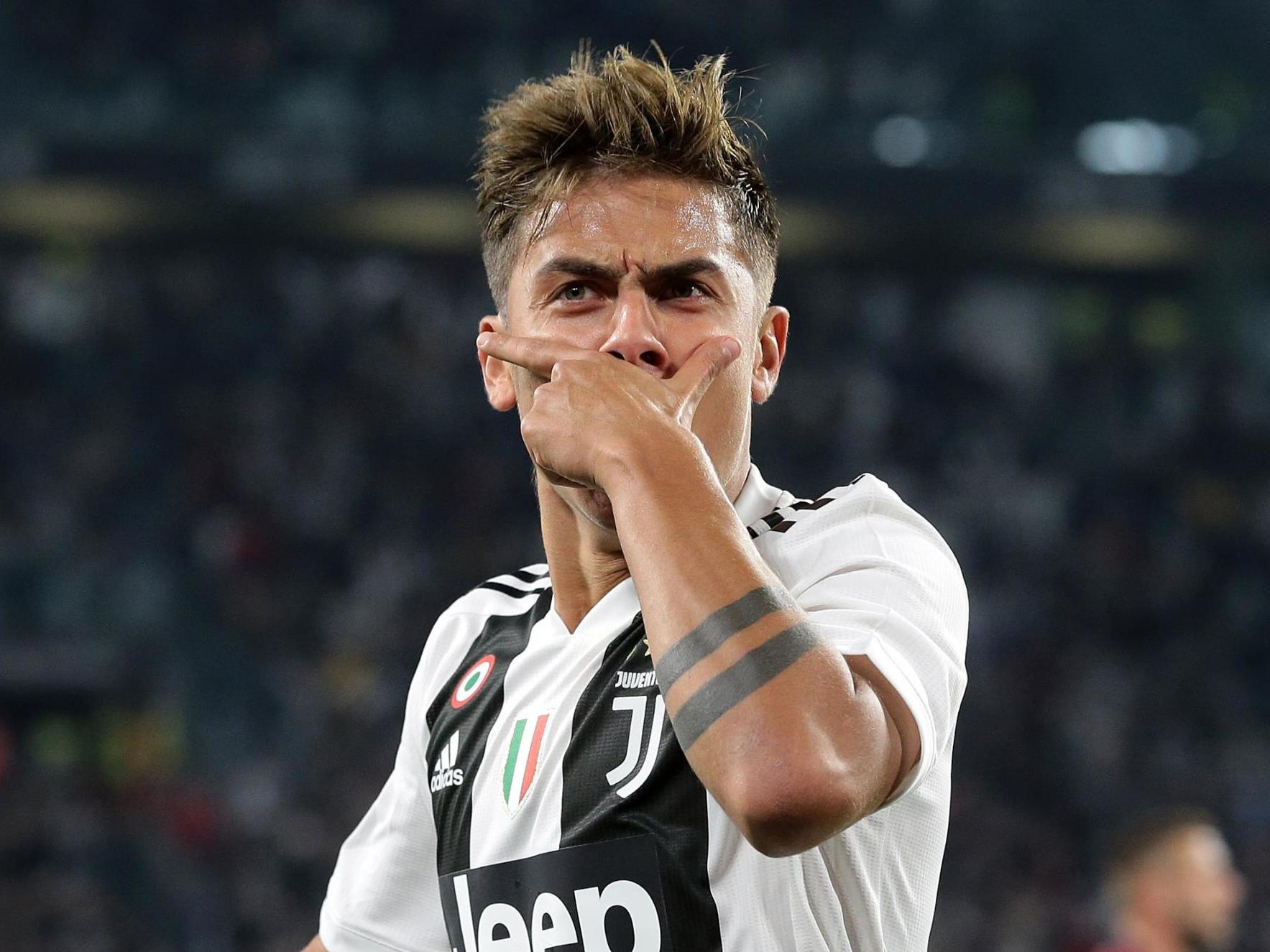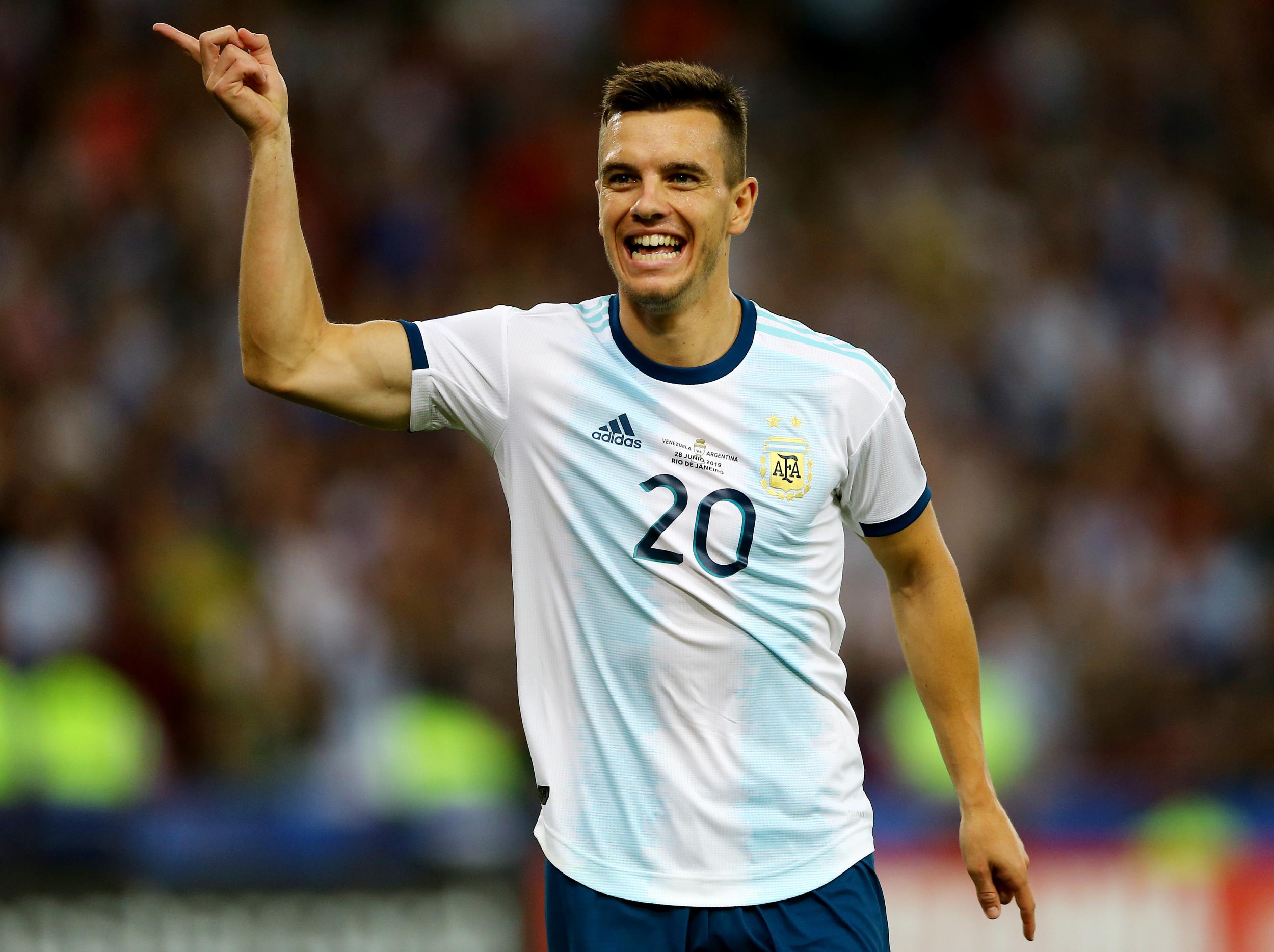Paulo Dybala: How close Tottenham came to pulling off the biggest deal of the transfer window
Spurs did everything within their power to sign the Juventus forward, only for Paris Saint-Germain intermediaries and a complex image rights situation to derail their bid

Your support helps us to tell the story
From reproductive rights to climate change to Big Tech, The Independent is on the ground when the story is developing. Whether it's investigating the financials of Elon Musk's pro-Trump PAC or producing our latest documentary, 'The A Word', which shines a light on the American women fighting for reproductive rights, we know how important it is to parse out the facts from the messaging.
At such a critical moment in US history, we need reporters on the ground. Your donation allows us to keep sending journalists to speak to both sides of the story.
The Independent is trusted by Americans across the entire political spectrum. And unlike many other quality news outlets, we choose not to lock Americans out of our reporting and analysis with paywalls. We believe quality journalism should be available to everyone, paid for by those who can afford it.
Your support makes all the difference.Tottenham Hotspur wanted to sign him. Juventus wanted to sell him. And Paulo Dybala wanted to move.
In the end, none of it really mattered. The English transfer window has now closed and Dybala remains a Juventus player. Sources close to the Juve dressing room say he is furious at the situation he has been placed in by the Italian champions. Juventus will now attempt to farm him out to Paris Saint-Germain or elsewhere ahead of their own deadline, on September 2.
Contrary to reports, negotiations between the two clubs went down to the wire. Spurs were desperate not to miss out on a player they have spent three weeks painstakingly working to sign, while Juventus need a sale to balance their uneven wage-turnover ratio. As the clock ticked steadily down, a series of alternative deals were proposed, but there was simply too little time left to play with.
But a transfer taking Dybala away from Juventus was never going to be easy.
Tottenham began negotiating for Dybala soon after breaking their club-record transfer fee to sign the France international Tanguy Ndombele from Lyon for an initial £55.4m. They initially faced competition from Manchester United, who wanted to exchange the disgruntled Romelu Lukaku for the Argentine, only for the complicated swap deal to quickly break down. United also considered matching Juventus Sporting Director Fabio Paratici’s asking price, but found Dybala’s £350k-per-week wage demands prohibitive.
Such an obstructive demand also demonstrated that Dybala never really wanted to move to Old Trafford, as he had considerable doubts over their current profile. Tottenham was a much more appealing destination, particularly because of the opportunity to work with Argentine compatriot Pochettino and their status as a modern Champions League club.
That is the benefit of getting to a final.
Having watched United’s interest wane as they began to focus on other targets, and safe in the knowledge that Juventus viewed Dybala as their most sellable asset as they continued to rebuild their squad in Sarri’s image, Spurs decided to make their move in the final week of the window. Juventus readily accepted a transfer offer in the region of €70m, but Spurs were still left with several obstacles to overcome.
First of all, they had to find the financial muscle to meet Dybala’s wage demands, which exceeded the £200k-per-week currently earned by top earner Harry Kane. There was also another pressing issue, which had already helped to scupper Manchester United’s approach and would ultimately end Tottenham’s hopes of landing one of the biggest signatures in the club’s history.
Image rights.
It was an extraordinarily complex detail in an already labyrinthine deal. Some years ago, Dybala had sold his image rights – the right a player possesses to control, sell, license and otherwise monetise his likeness – to the Malta-based Star Image Company, owned by his former agent, Pierpaolo Triulzi. That meant that, before any transfer could be ratified, Spurs would have to reach a financial agreement with the company since image rights are not legally recognised by the Premier League.
The Independent was told by sources close to the Italian side of the deal that this fee would be significantly lower than the £40m quoted by several Italian newspapers. But it was still a headache, for both Spurs and Juventus.

As recently as Wednesday evening, there was real confidence an agreement could be reached, with a cautiously optimistic Juventus doing everything within their power to help Tottenham untangle the image rights issue and push through the deal. But, by Thursday morning, the landscape had already altered drastically.
“Everything is now hanging by a thread,” said a source involved in the deal at 11am on deadline day.
Juventus’ caution was well-placed. As Spurs progressed with their attempts to sign another Argentina international, Giovani Lo Celso, as well as Fulham’s Ryan Sessegnon, they hit a brick wall in their attempts to strike an expensive agreement over Dybala’s image rights. A permanent transfer was well and truly off the cards.
In a clear case of expectation management, Triulzi let it be known that it was Juventus who had decided to pull the plug, in the wake of their ideal replacement – United’s Lukaku – agreeing a transfer to Inter Milan. Yet, behind the scenes, both Juventus and Spurs continued their attempts to facilitate a switch. An ambitious attempt to agree a temporary loan with a legal obligation to buy – thus briefly circumnavigating the image rights problem – was even explored, as Tottenham made one last ditch attempt to salvage a deal they had expended so much effort working on.

But there remained too many complications. And there remained too little time.
Thursday’s 5pm deadline arrived. It did not help Tottenham that, late into the negotiation, intermediaries from Paris Saint-Germain sought to reassure Juventus that the French champions remain interested in signing Dybala in the event of Neymar’s possible sale. Juventus have three weeks to work on that deal. Hashing out a panicked agreement with Spurs therefore made little logical sense.
For Spurs, the failure to sign Dybala is in no way a disaster. Having gone close to two years without signing a player, they have spent well over £100m this summer to bring Ndombele, Jack Clarke, Sessegnon and Lo Celso to the club. They are a stronger team than last season. But, having come so close to signing one of the most exciting young forwards in the world, this window will always be remembered by fans with a tinge of disappointment.
They have done good business. But signing Dybala would have made it complete business.
Join our commenting forum
Join thought-provoking conversations, follow other Independent readers and see their replies
Comments